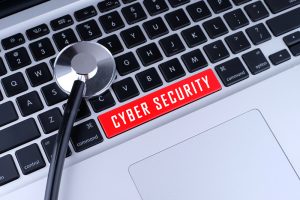
Working to protect health care technologies against cyberattacks, U.S. Rep. Susan Brooks (R-IN) introduced legislation last week that would establish a public-private stakeholder partnership to develop a framework to protect sensitive health care information.
“There are millions of medical devices susceptible to cyberattacks and often times, we are wearing these networked technologies or even have them embedded in our bodies,” Brooks said. “Bad actors are not only looking to access sensitive information, but they are also trying to manipulate device functionality. This can lead to life-threatening cyberattacks on devices ranging from monitors and infusion pumps, to ventilators and radiological technologies.”
Brooks’ introduction of the Internet of Medical Things Resilience Partnership Act on Oct. 5 coincided with National Health IT Week. The public-private stakeholder partnership would assess and centralize current cybersecurity standards, guidelines, frameworks and best practices to identify shortcomings and solutions to help guide Internet of Medical Things developers going forward.
As reliance of connected medical devices grows greater, Brooks added, so does the urgency to draft guidelines to prevent dangerous and potentially life-threatening attacks. In response, Brooks introduced the bill with U.S. Rep. Dave Trott (R-MI).
“It is essential to provide a framework for companies and consumers to follow so we can ensure that the medical devices countless Americans rely on and systems that keep track of our health data are protected. I am proud to introduce a bill with my colleague Rep. Trott that brings together public and private sector counterparts to address potential vulnerabilities of medical technologies,” Brooks said.
Trott, meanwhile, noted that technology has improved quality of life and made health care more efficient, but its greatest strength — perpetual evolution — has also become its greatest liability.
“Since 2009, the health care data of over 127 million Americans has been compromised by cyber criminals, and existing security frameworks continue to leave this information vulnerable by failing to adapt to technological innovation,” Trott said.
The new legislation would develop a robust yet malleable framework to protect Americans’ most sensitive medical information, he added.



